Have you ever felt like someone was so into you one minute and then vanished from the face of the earth? Hate to break it to you, but you were not just ghosted, you were “dismissive avoidant” ghosted. It’s a relationship magic trick, and definitely not the fun kind. So who is a dismissive avoidant and what is dismissive avoidant ghosting, really?
This type of ghosting comes from a place where independence is key and emotional closeness feels threatening. If you can picture someone building an invisible fortress around themselves and darting away when things get too real, that’s dismissive avoidant attachment right there.
Curious? Let’s dive into the glaring signs of dismissive avoidant ghosting, but before that, let’s try to understand who is a dismissive avoidant.
Related: How Attachment Style Determines Your Choices
Who Is A Dismissive Avoidant Person?
Dismissive avoidant attachment is an attachment model in which a person tries to avoid relying on others or having others rely on them. It is a type of attachment style characterized by someone avoiding vulnerability, closeness, and intimate attachment with others.
A dismissive-avoidant person may even avoid relationships altogether and crave independence. They tend to be very cautious about feeling controlled, which is why they’ll create distance if they have to because they want to maintain their independence and space.
Whenever things become a bit too intense in their relationships, they quickly go back into their shell, and might even invalidate their partner’s concerns about the relationship by calling them clingy or just ending the relationship entirely.
10 Signs Of A Dismissive Avoidant Person
Okay, now that we know who is a dismissive avoidant person, let’s explore the signs.
1. They are usually very emotionally reserved.
Being emotionally reserved is one of the most common signs of a dismissive avoidant. The distance they create from other people usually stems from a deep discomfort with emotional intimacy and an overwhelming desire for self-sufficiency.
Those who have this attachment style do everything they can to avoid vulnerability – they avoid expressing vulnerability and refuse to share any emotional needs or feelings.
They might also downplay the importance of emotional connections with others and would rather stay emotionally distant.
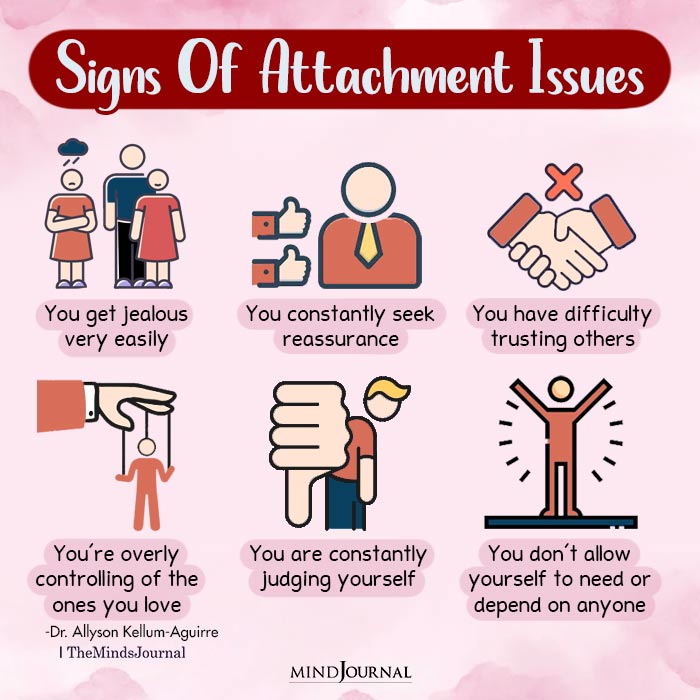
2. They are highly confident and self-assured.
One of their biggest strengths is their strong self-esteem and resilience. They have complete trust in themselves as well as all the things that they can do in life, which would make anyone feel proud of themselves.
With that said though, their high levels of self-assuredness can also be seen as a defence mechanism used for avoiding emotional vulnerability through keeping others at bay by any means necessary.
By using their self-confidence as a shield for protecting themselves against harm, these individuals end up having trouble when trying to form deep emotional bonds with anyone out there who’s willing to give them a chance.
3. They tend to gravitate towards shallow relationships often.
Who is a dismissive avoidant, you wonder?
People with dismissive attachment styles typically don’t have very many or even good friends. The reason why this is the case is because they’re so independent and prefer to never form deep emotional ties with others.
They’ll always put others at a distance in order to avoid becoming too dependent on them for anything. Because they’re so emotionally distant, they often fear either having to rely on someone else or that someone is going to rely on them.
By doing all of this, they’ll be able to feel like they’re staying in control and can hopefully also steer clear of any type of vulnerability whatsoever.
Related: Why Do You Always Fall For Emotionally Unavailable Partners?
4. They are scared of rejection.
One of the glaring signs of a dismissive avoidant person is their extreme fear of rejection or abandonment. While it may not be expressed outwardly, there’s always that worry in the back of their mind that conflict could lead to rejection, which could be why they chose to ghost you in the first place!
For them, it’s better leave now and vanish before they get hurt badly. In their minds, avoiding conflict is equivalent to protecting themselves from something worse later down the line.
5. They are very secretive.
If you are wondering who is a dismissive avoidant, then keep an eye out for this hidden sign.
People who have a dismissive-avoidant attachment style are often very secretive and inflexible. They don’t want other people to affect their own personal plans so they never share them. They’re usually scared of being vulnerable and therefore try really hard to always be in control.
By remaining secretive, they feel safe and independent. But it also ensures that they won’t ever form close relationships with anyone because they’ll constantly feel isolated. Their secrecy is just a shield for deflecting rejection and criticism.
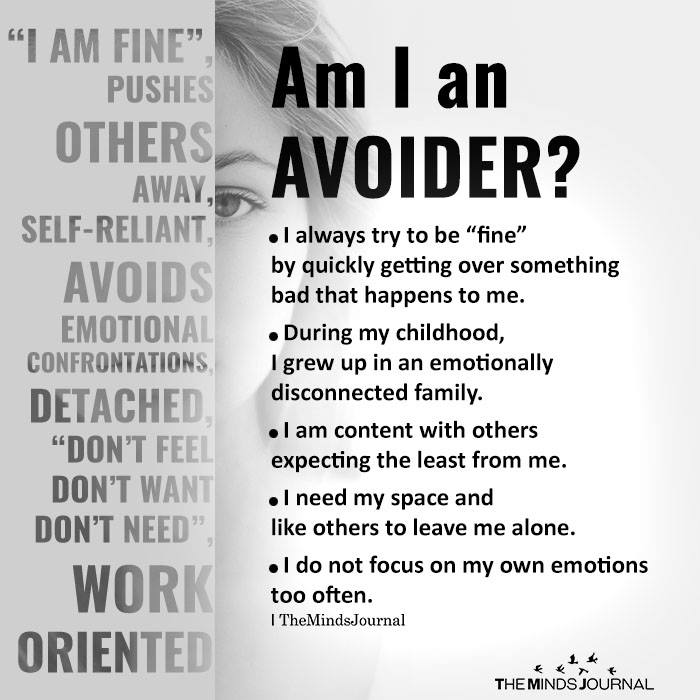
6. They display signs of a superiority complex.
One of the subtle signs of a dismissive avoidant individual is that they will typically put on a superior persona as a way of hiding their weaknesses. They’ll act as if they’re better than others and criticize them regularly — sometimes even subtly.
They also tend to value professional success above all else; that way, no one will get too near them to see the truth about how they feel inside.
It’s easy for them to maintain control and distance over people when they act this way, but it can push everyone away from them and make it even more difficult to form genuine connections.
Related: Is Your Attachment Style At The Root Of Your Struggles?
7. They nitpick too much.
Dismissive avoidants can’t help but always look for something to complain about. They overly direct their attention towards minor flaws or imperfections in the relationship. This behavior could look like extreme criticism or even trying to find faults in their partner’s behavior.
Often times, it’s just a small thing but they like finding anything they can get onto to create space and maintain emotional detachment. They have no interest of going deeper into a relationship.
8. They have massive trust issues.
Another one of the biggest signs of a dismissive avoidant is this.
It’s hard for them to trust others when past experiences weigh down on them. Their lack of trust is shown in their skepticism, doubt, and constant need for reassurance.
Allowing them to ghost someone comes from these deep trust issues, when things are uncertain they’ll do everything they can to protect themselves by ending the relationship altogether.
9. They avoid conflict like the plague.
There is nothing more that dismissive avoidants hate more than conflict and confrontation. So much so that they go out of their way to not be a part of difficult conversations or address any problems straight up.
A few things they might do is ignore conflicts, avoid discussions that require vulnerability/emotional communication, or just withdraw from certain conversations altogether when signs of tension arise.
10. They are scared of being abandoned.
Fear of abandonment runs deep in dismissive avoidants and it’s usually linked with past experiences of being abandoned themselves or feeling unworthy as a person.
Since this sense of fear is very strong, they usually push away others and make them want to leave by using tactics such as ghosting people abruptly, ending relationships or cutting strings with people after building a somewhat good relationship with them.
Doing this gives them back some sense of control and emotional preservation which makes them feel safe from being hurt again.
Dismissive Avoidant Attachment Vs Avoidant Attachment
In order to understand how dismissive avoidants functions, it’s important to understand the difference between dismissive avoidant attachment and avoidant attachment. Many people tend to get confused between the two, and end up thinking that both are same.
But they’re not. Let’s find out how both these attachment styles differ from each other.
a) The way they express their emotions.
A dismissive avoidant suppresses emotions, struggles with recognition and expression, whereas fearful avoidants are emotionally sensitive, and can feel overwhelmed by emotions due to fear of rejection.
b) The way they behave in relationships.
Who is a dismissive avoidant? Someone who maintains emotional distance, avoids commitment, and always prioritizes independence. A fearful avoidant exhibits a push-pull dynamic, oscillates between seeking closeness and creating distance.
c) The way they express their attachment.
Dismissive avoidants minimize the value and seriousness of their relationships, avoid emotional discussions, and always prioritize self-reliance. Fearful avoidants are ambivalent about commitment, fear rejection, and tend to engage in self-sabotaging behaviours.
d) The way they feel in relationships.
Who is a dismissive avoidant? Someone who may have lower relationship satisfaction due to avoiding emotional intimacy. Fearful avoidants may struggle with relationship satisfaction due to conflicting desires, relationship instability, and emotional turmoil.
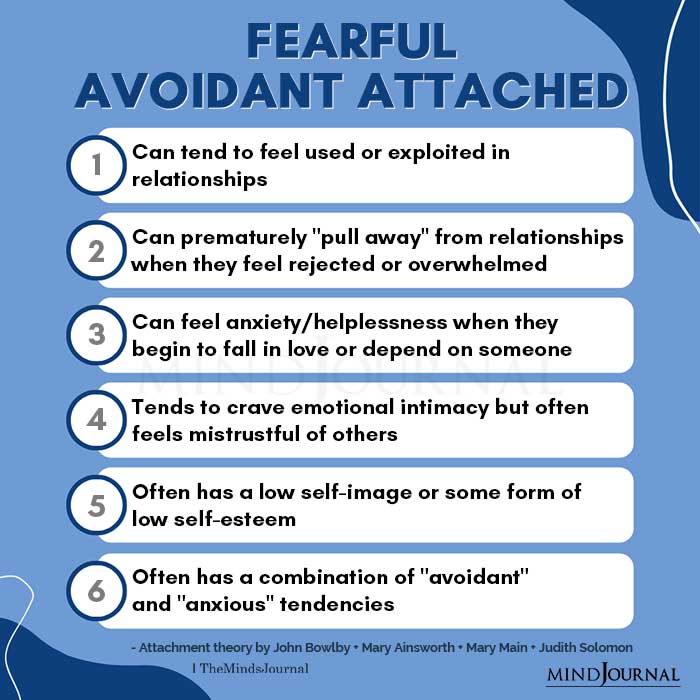
Avoidant Attachment And Ghosting
What is the deal with avoidant attachment and ghosting?
Avoidants are likely to ghost because they have a serious fear of intimacy, which they might not even realize.
A person with avoidant attachment is scared of intimacy because of their definition of love, which they learned when they were a child. When a parent in their life failed to have healthy boundaries, they learned it’s their responsibility to take care of others. This, unfortunately, led them to equate love with obligation, duty, and suffocation.
At first, in a relationship, they may seem highly attentive and really, really “into you”. This is because they firmly believe that taking care of you and all your needs is their primary job. However, after a point, they start to feel overwhelmed and exhausted.
This is where avoidant attachment and ghosting come in. An avoidant will start to believe that you are the problem. They may tell themselves that you asking for too much and you are “too needy.”
Before they disappear and ignore you altogether, they slowly start to distance themselves. They might make excuses of being very busy at work, or they might hint that they are “not ready” for a serious relationship.
When it comes to avoidant attachment and ghosting, chances are they might also have cheated on you. This is a form of self-sabotage which ensures that the relationship never works out.
Related: How Childhood Attachment Patterns Affects Adult Relationships
Why Do Dismissive Avoidants Ghost?
- Fear of intimacy: The fear of getting close to others is one of the most common reasons behind dismissive avoidant ghosting. It’s likely that they’ve had a similar experience in the past, making them hesitant to get close to anyone again.
- Emotional detachment: Dismissive avoidants greatly struggle with being open with their emotions and empathizing with others. They ghost to detach themselves emotionally and keep their own emotions under control.
- Difficulty with vulnerability: To them, it feels weird when they have to rely on someone else for support. That’s why when things go wrong between them and another person, they’ll simply choose to become distant instead of talking about their problems.
- Lack of communication skills: In most cases, dismissive avoidants struggle to properly address concerns or emotions in a relationship. Instead of trying though, they’d rather dodge any sort of conversation by vanishing into thin air.
- Emotional overload: Being overwhelmed by a lot of emotions is never really a great feeling. For them, it can even be their personal nightmare. To make sure they don’t have to deal with this, they will simply run away by ghosting.
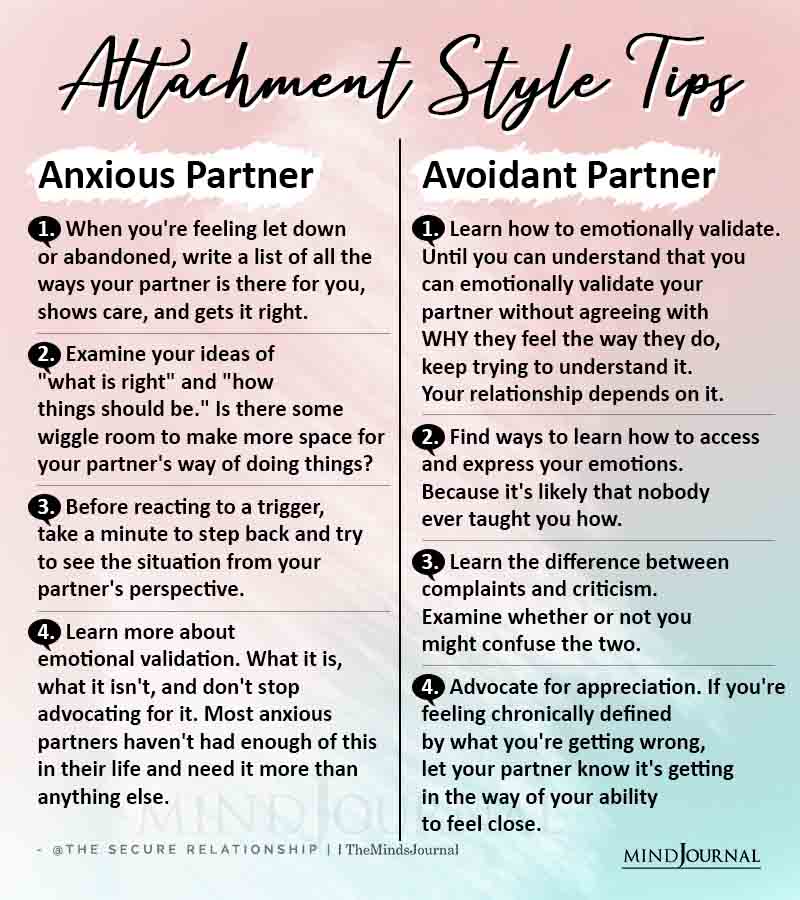
Takeaway
Falling in love, being in a relationship with a dismissive avoidant person, and then getting ghosted by them is probably one of the worst things to experience. Trust me, I’ve been there.
However, knowing these signs of a dismissive avoidant and understanding the reasons behind why do dismissive avoidants ghost others can help you healthily deal with your feelings.
Related: How Your Attachment Style Affects Your Relationship
Have you ever had any experience with dismissive avoidant ghosting before? Before reading this article, did you know who is a dismissive avoidant? Do let us know your thoughts and experiences in the comments down below!
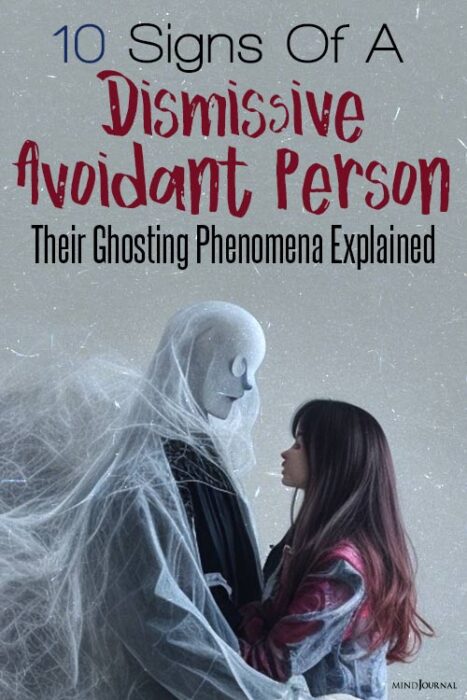
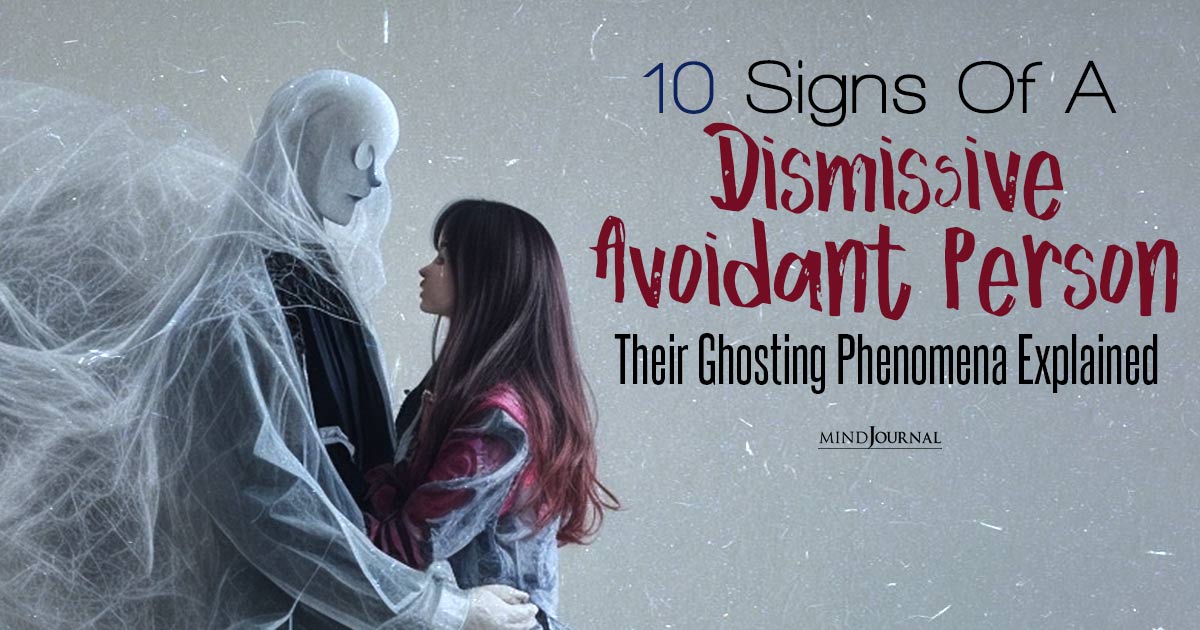


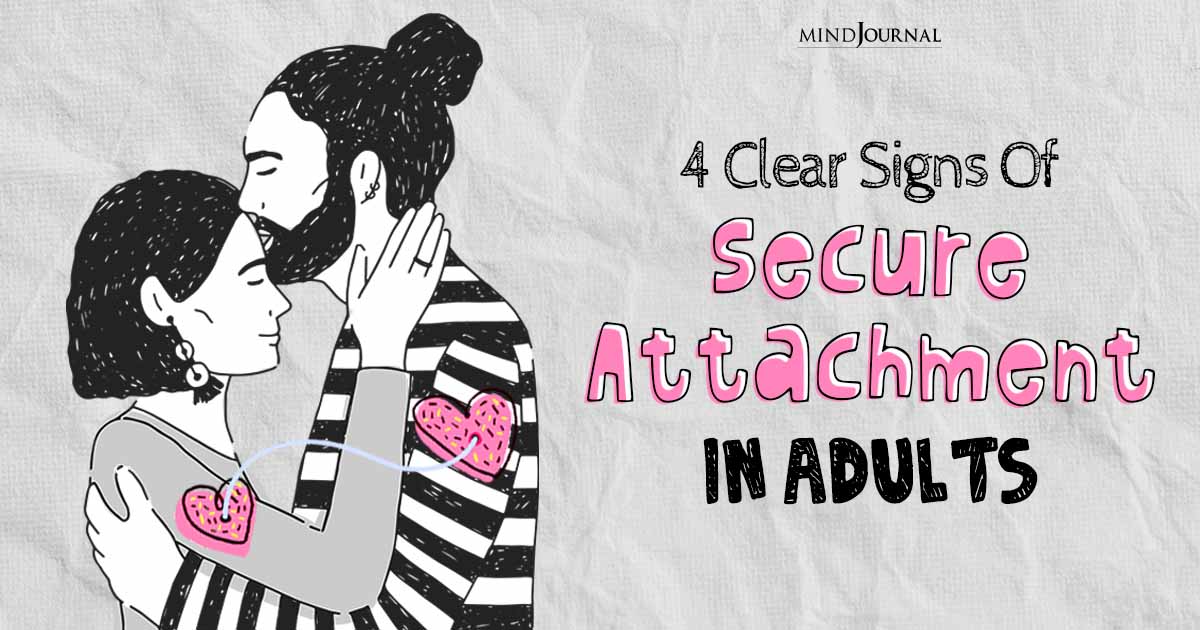
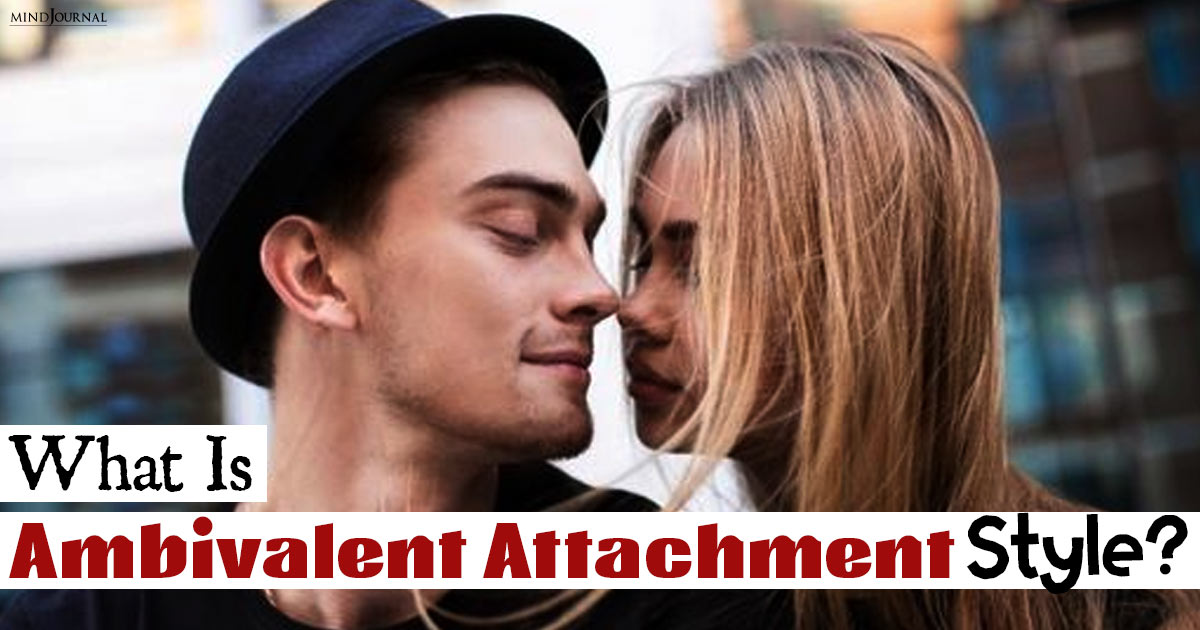

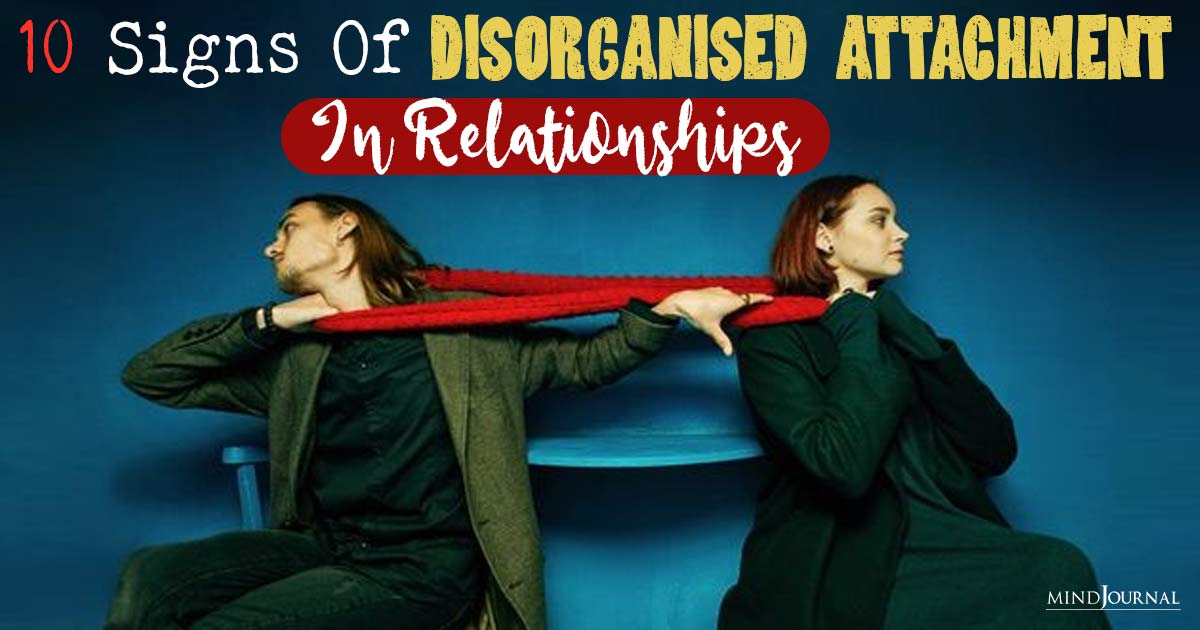
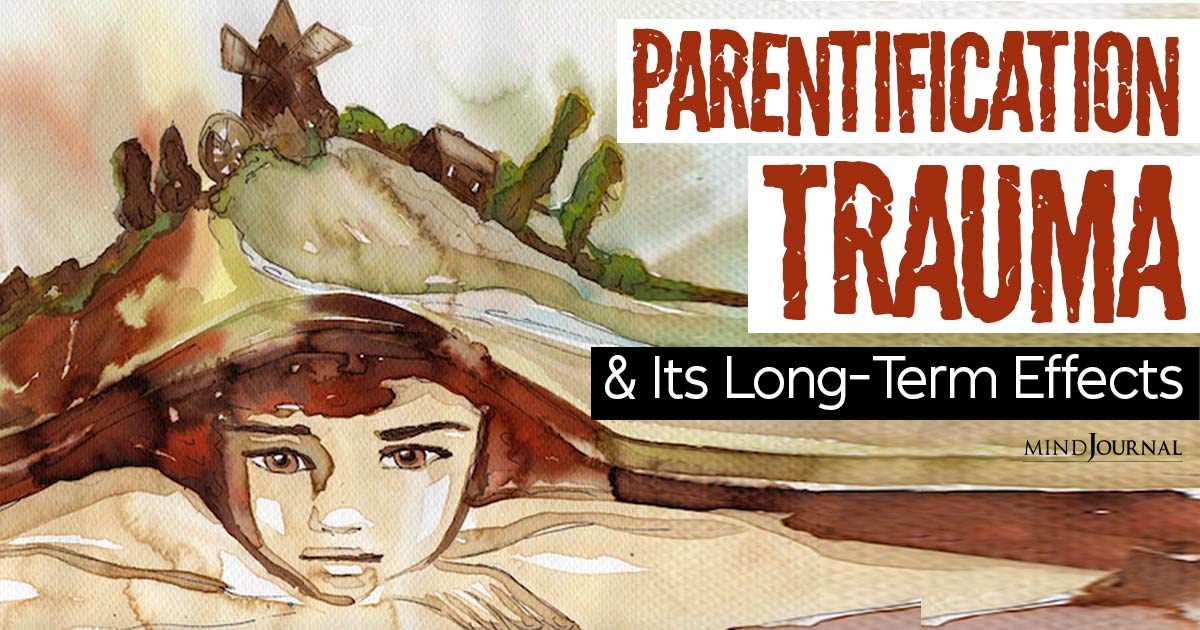
Leave a Reply
You must be logged in to post a comment.